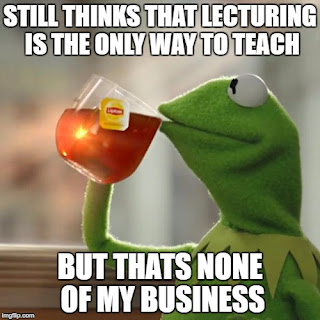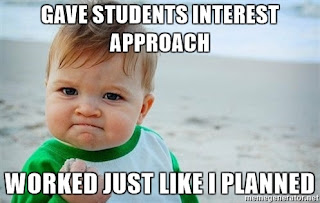How do we utilize inquiry based learning in our classrooms?

Essential Question: How do we Utilize Inquiry Based Learning in our Classroom? For the next two weeks Penn State #PSUAgEd18 will be exploring inquiry based learning. From my personal understanding Inquiry Based Learning (Inquiry Base Instruction) is a pedagogical approach which main goal is to make the students the driver of learning and the teacher more of a facilitator. So instead of this: Leading to this: Students Response We as teachers are encouraged to change up the lesson. Thinking about my high school experiences some of my favorite classes were the Project Lead the Way Classes - Why? They utilized inquiry based and problem based learning. Inquiry Based Learning is to Problem Solving Approach as Squares are to Rectangles Much like how all squares are rectangles but not all rectangles are squares: all inquiry lessons are also PSA but not all PSA lessons are inquiry lessons. With problem solving approach you have steps and like in inquiry t





